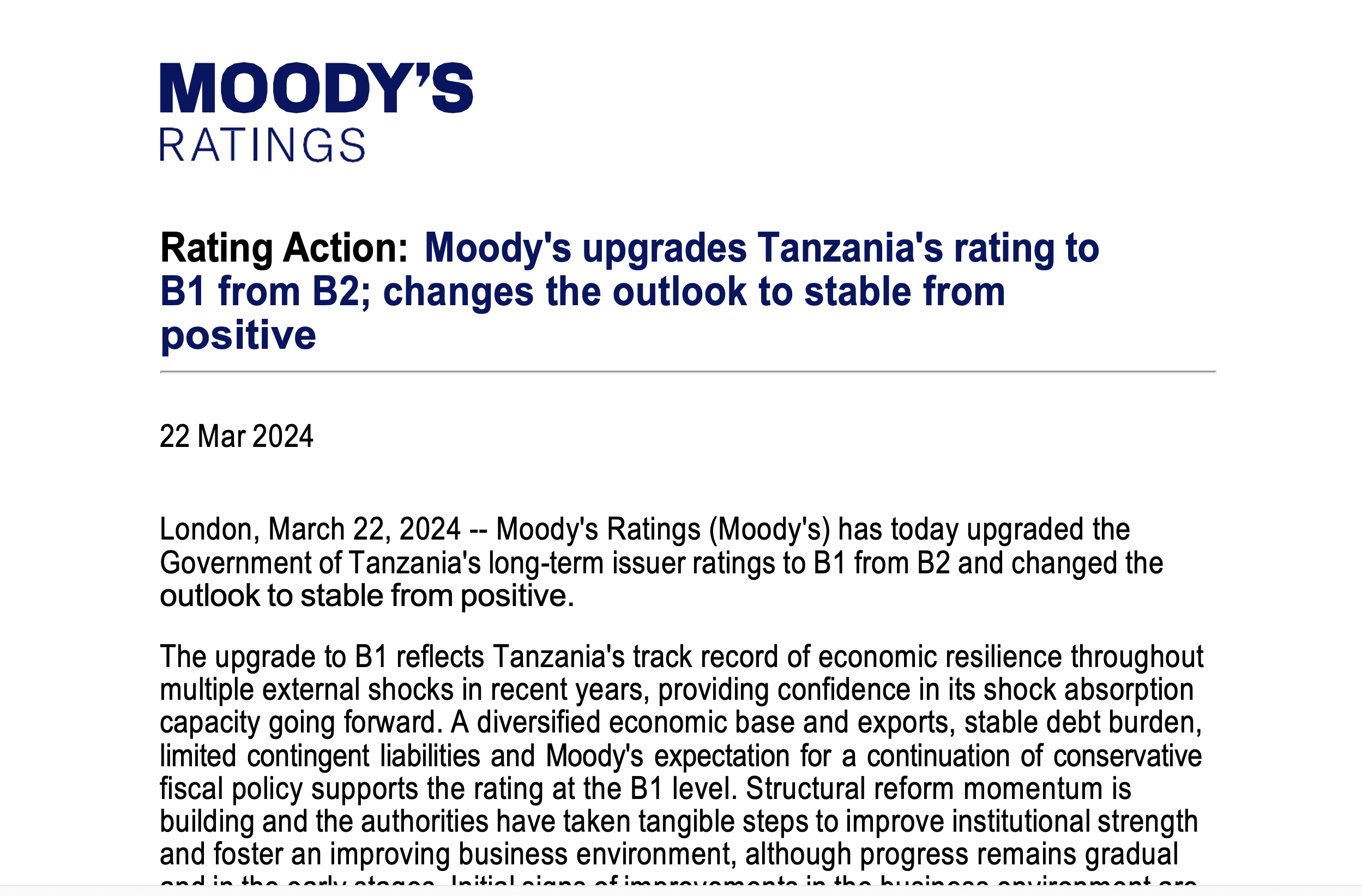Dar es Salaam: The recent elevation of Tanzania’s credit rating from B2 to B1 by Moody’s not only reflects the nation’s economic resilience and fiscal discipline but also marks a pivotal moment that demands strategic action.
This upgrade, signaling a vote of confidence in Tanzania’s economic direction, presents an opportune moment for the country to address existing challenges with renewed vigor and strategic insight.
Amid global uncertainties, this improvement in Tanzania’s credit standing is a clear indication of the country’s potential for sustained growth and development, urging policymakers and stakeholders to capitalize on this momentum for tangible, long-term benefits.
Prudence Lugendo, a Policy Specialist at SAGCOT Centre Ltd., underscores the importance of this achievement and its implications for Tanzania’s future economic trajectory. He points out that while the upgrade is a positive development, it highlights an area that requires immediate attention: the persistent current account deficit that Tanzania faces.
The current account deficit, a situation where a country’s imports exceed its exports, can pose significant challenges to sustaining living standards and managing foreign debt over time. However, it also presents an opportunity for strategic redirection, especially in sectors that can drive economic growth and balance. Lugendo’s emphasis on agriculture is both timely and strategic. Agriculture, being a cornerstone of Tanzania’s economy, holds immense potential for addressing trade imbalances, enhancing competitiveness, and ensuring sustainable growth.
By advocating for targeted policy interventions and investments in agriculture, Lugendo is pointing towards a multifaceted strategy that could mitigate the current account deficit issue. Increased domestic agricultural production could reduce the nation’s reliance on imports, thereby improving the trade balance. Furthermore, a robust agricultural sector could boost Tanzania’s exports, enhancing the country’s competitiveness on the global stage. This, in turn, would contribute to a more diversified and resilient economy, less vulnerable to external shocks.
Lugendo’s call for strategic investment following the credit rating upgrade serves as a critical reminder that such milestones, while celebratory, should also be seen as a call to action.
It underscores the importance of leveraging positive developments to address underlying economic challenges. By focusing on strategic sectors like agriculture, Tanzania can not only address its current account deficit but also lay the groundwork for sustainable growth and development. This approach could transform the positive momentum from the credit rating upgrade into tangible economic achievements, marking the beginning of a transformative era for Tanzania.
